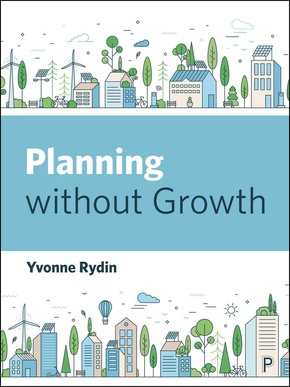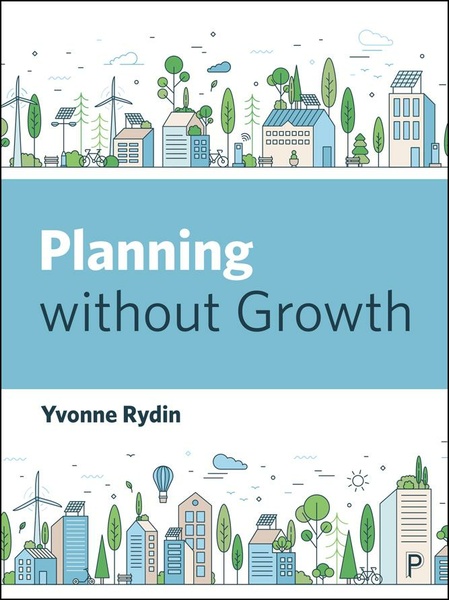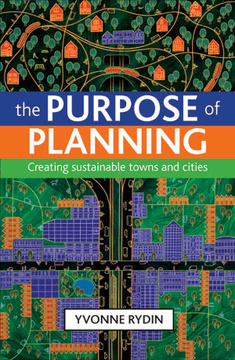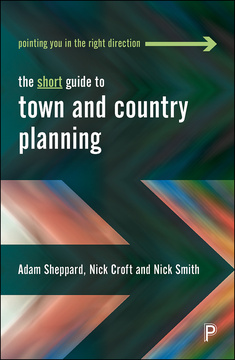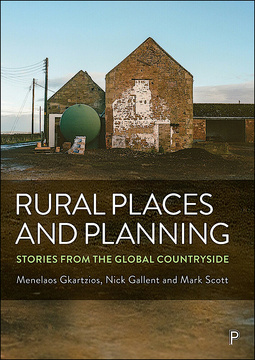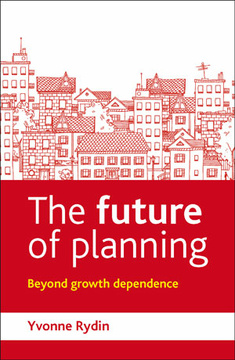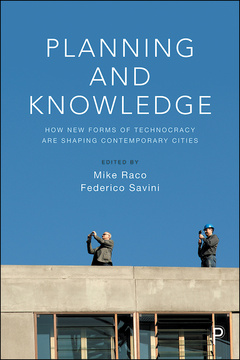Planning Without Growth
By Yvonne Rydin
Published
Feb 25, 2025Page count
304 pagesISBN
978-1447369776Dimensions
244 x 170 mmImprint
Policy PressPublished
Feb 25, 2025Page count
304 pagesISBN
978-1447369783Dimensions
244 x 170 mmImprint
Policy PressPublished
Feb 25, 2025Page count
304 pagesISBN
978-1447369783Dimensions
244 x 170 mmImprint
Policy Press
In the media
'Becoming a Post-Growth Planner #10: Yvonne Rydin' on Post-Growth Planning
'The Potential of Post-Growth Planning: Re-Tooling the Planning Profession for Moving beyond Growth' on BartlettPlanning
Many planning systems are currently locked into growth-dependence, encouraging market-led development which can widen social inequalities and produce adverse environmental outcomes.
This accessible book introduces students to the debates around growth and planning and sets out the solutions to promote genuinely sustainable communities. It includes:
•a positive proposal for reform of the planning system;
•focused discussions from the UK and Europe providing lessons for future planning;
•analysis of the challenges of implementing reform.
Covering chapters on cooperatives, community land trusts, local economic development and community assets and infrastructure, as well as commoning, it provides a roadmap for planning system reform with social justice and sustainability at its heart.
“This book shows that planning beyond growth is today necessary, desirable and viable. Rydin harnesses the power of the foundational economy to create a paradigm of socio-spatial change that places universal essential needs at its heart. Her pragmatic approach will inspire a whole future generation of planning professionals.” Federico Savini, University of Amsterdam
Yvonne Rydin is Professor of Planning, Environment and Public Policy at the Bartlett School of Planning, University College London.
1. Planning and the Pro-growth Agenda
2. Alternative Perspectives on Planning and Growth
3. A Post-growth Framework for Exploring Planning Without Growth
4. Economic Development and Small Local Firms
5. Economic Democracy and Cooperatives
6. Housing Development and Community Land Trusts
7. Community Assets and Social Enterprise
8. Community-Based Infrastructure
9. Urban Commoning
10. Planning without Growth as Rebalancing a Diverse Economy







